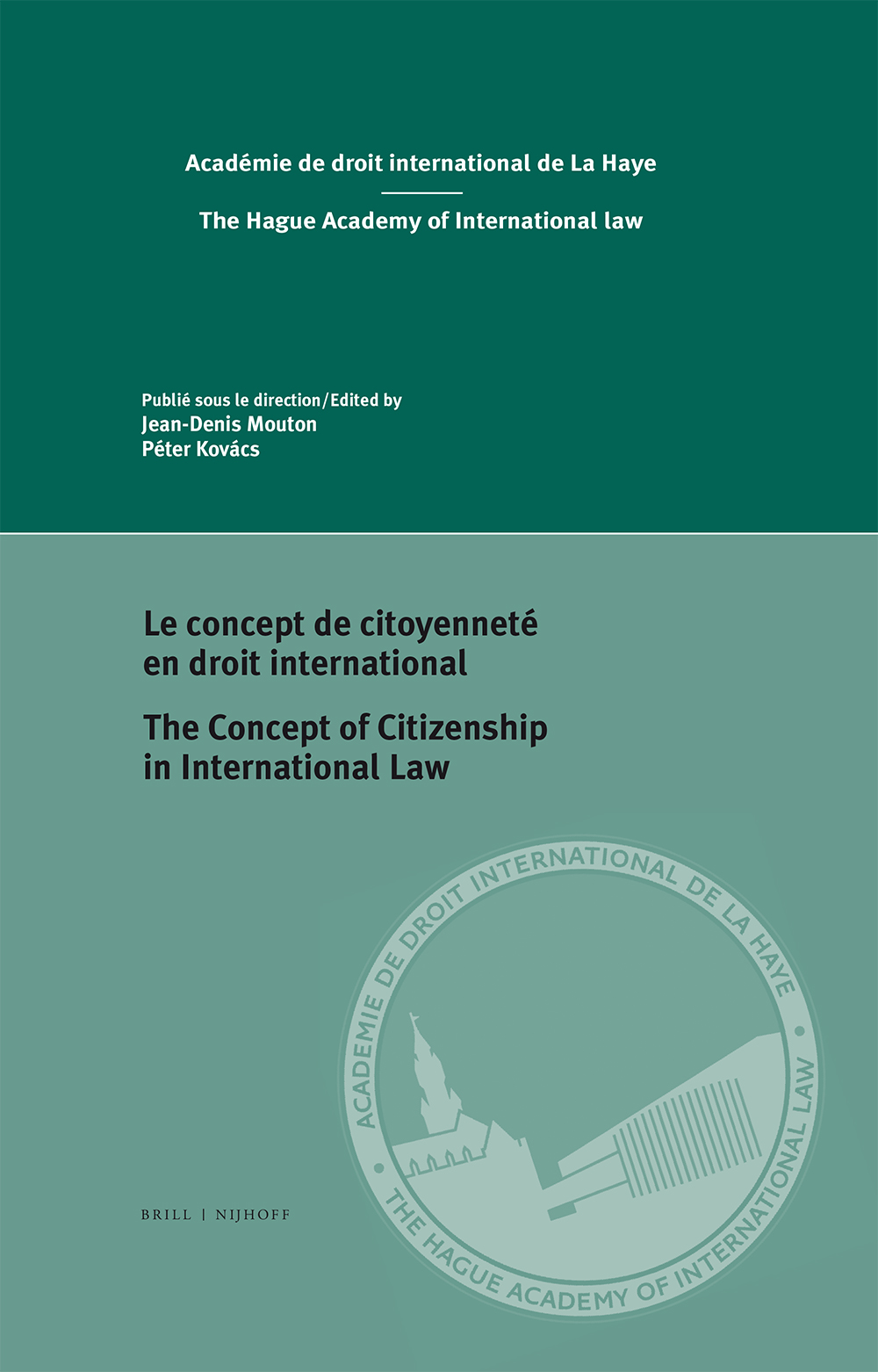
Le concept de citoyenneté en droit international
Dirigé par Jean-Denis MOUTON et Péter KOVACS
Brill | Nijhoff - février 2019
Pages : 684
Résumé :
Plusieurs phénomènes justifient de jeter un éclairage sur le concept de citoyenneté en droit international. D’un côté la mobilité des personnes, qui s’est accentuée dans la dernière partie du vingtième siècle, s’est traduite par la multiplication des nationalités multiples. D’un autre côté, le phénomène migratoire souvent lié à des crises, contribue à perpétuer la situation d’apatridie, et à interpeller le droit international. Mais un processus tel que l’internationalisation des droits de l’homme, peut aussi avoir un impact sur le droit de la nationalité. Par ailleurs, dans le cadre d’organisations régionales, on assiste à l’émergence de nouvelles formes de citoyenneté. Ce phénomène s’ajoutant à la persistance de citoyennetés historiques contribue à questionner le concept de citoyenneté en droit international. Pour tenter d’y apporter des réponses, cet ouvrage envisage d’abord des aspects théoriques communs, qui se posent au niveau universel, avant de développer des aspects au niveau régional. Il essaie ainsi d’enrichir une réflexion en cours dans la communauté scientifique et au-delà, relative aux questions liées à la nationalité et à la citoyenneté.
Abstract:
Several trends justify why it is worth analyzing the concept of citizenship in international law. On the one hand, human mobility enhanced in the last decades of the twentieth century contributed largely to the multiplication of multiple citizenship. The phenomenon of migration, often linked to crises, fosters statelesness and presents new challenges to international law. The internationalization of human rights can accordingly have an impact on the law of nationality. Moreover, within the framework of regional organizations, new forms of citizenship are emerging. This phenomenon, going hand in hand with the traditional, history based citizenship is also contributing to the challenges that the concept of citizenship faces
in international law. Attempting to get answers to these questions, the volume tackles first common theoretical aspects at a universal level to be followed later by the analysis of the regional aspects. It tries to deepen the ongoing discussion in the scientific community and among the greater public on nationality and citizenship issues.
